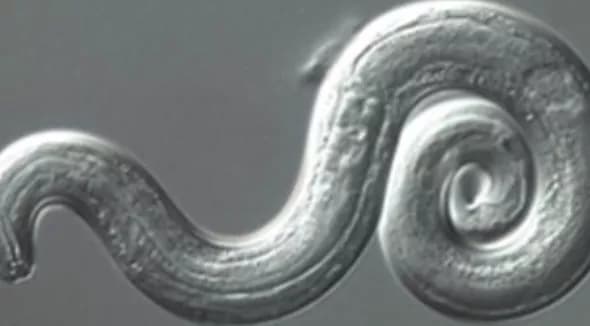
Infant Hospitalized For Rare Brain Parasite In Hawaii
An infant was hospitalized for rat lungworm disease on Wednesday, probably after consuming a slug or snail on the Big Island of Hawaii, according to a statement from the Hawaii Department of Health. This marks the 10th case of the infection on the island and the 17th statewide in 2017.
"This is an extremely unfortunate incident, with the infant currently hospitalized and receiving care," Aaron Ueno, the Hawaii island district health officer, said in the statement, adding that the department cannot provide specific information about this case.
Rat lungworm cannot be transmitted between individuals, but anyone can acquire the disease by consuming raw or undercooked slugs, snails, freshwater shrimp, land crabs or frogs infected with the parasite Angiostrongylus cantonensis, state officials noted.
Symptoms of the parasitic disease can include severe headaches and neck stiffness, since the disease primarily affects the brain and spinal cord, according to the US Centers for Disease Control and Prevention, as well as nausea, vomiting and fever. The illness usually lasts between two weeks and two months, and on average, the incubation period is one to three weeks. However, an infection can incubate in only a single day or in six weeks.
The Hawaii Island District Health Office recommends that parents take extra precautions by monitoring what children put in their mouths, ensuring that they wash their hands after playing on the ground and cleaning all fruits and vegetables. Pieces of snails and slugs may accidentally be "chopped up in vegetables, vegetable juices, or salads; or foods contaminated by the slime of infected snails or slugs," according to the CDC.
Homeowners should eliminate slugs, snails and rats from around home gardens, a statement from Hawaii Gov. David Ige said in August. When it comes to produce, fruits and vegetables should be washed and rubbed under running water, especially leafy greens, to remove any tiny slugs or snails. Any food that needs to be stored should be put in sealed containers to prevent snails or worms from getting inside.
Worldwide, 2,800 cases of rat lungworm have been reported from 30 countries, including some in Southeast Asia, Australia, Africa, the Caribbean, Florida and Louisiana, according to the CDC.
Janice Okubu, a spokeswoman for the Department of Health, noted this year that Hawaii typically reports only one to nine cases of rat lungworm each year. Hawaii has reported the most cases in the United States.
Due to rising concerns about the disease, the governor's office announced in August more efforts to prevent it, including funding for an awareness campaign and a partnership to study disease routes and risks.
"We are bringing together local experts from relevant fields to increase public awareness, improve our response activities, and explore ways to control and treat the disease," Ige said in the statement.
CNN's Susan Scutti contributed to this report.
Materials provided by CNN. Note: Content may be edited for style and length.
Disclaimer: DoveMed is not responsible for the accuracy of the adapted version of news releases posted to DoveMed by contributing universities and institutions.
References:
Larned, Victoria. (2017). Infant hospitalized for rare brain parasite in Hawaii. CNN.
Related Articles
Test Your Knowledge
Asked by users
Related Centers
Related Specialties
Related Physicians
Related Procedures
Related Resources
Join DoveHubs
and connect with fellow professionals

0 Comments
Please log in to post a comment.